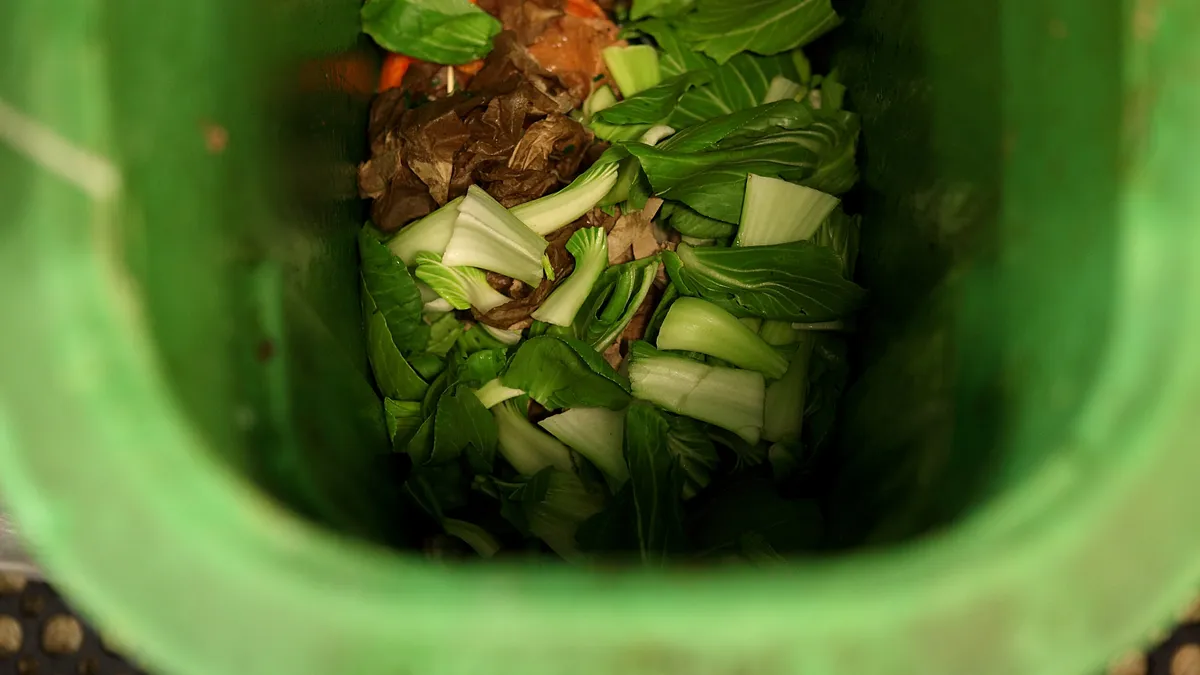The farm bill is set to expire next year. Organics recycling advocates aim to make sure the reauthorized 2023 omnibus bill includes more explicit provisions for compost efforts.
During a webinar hosted by the U.S. Composting Council last week, advocates called for expanding existing farm bill programs and adding new resources they said could boost composting’s importance to the economy. The U.S. Department of Agriculture could broaden grants to allow more organizations to apply for composting projects, focus more resources on composting education initiatives and promote composting over chemical-based fertilizers, among other strategies, said Frank Franciosi, USCC’s executive director.
The farm bill, typically reauthorized every five years, includes funding for a wide range of efforts including crop growth, crop insurance, nutrition programs, loans for farmers and education programs. Congress last passed the farm bill in 2018, which allocated $428 billion over five years.
Though the 2018 farm bill was “a mixed bag” for composters and composting programs, there were a few notable exceptions, said Becca Mitchell, a food and agriculture law and policy student at the Vermont Law and Graduate School who analyzed the 2018 farm bill.
The 2018 version created a new staff position at USDA, the food loss and waste reduction liaison, who coordinates and promotes various food waste programs across federal agencies. The USCC has called for the 2023 bill to expand that position by hiring additional staff and creating a more formal office.
The 2018 bill also provided grants for municipalities to launch or support composting programs and other food waste strategies, known as the Composting and Food Waste Reduction Cooperative Agreement Program.
These are important steps, but “there’s still so much more to do,” Mitchell said. USCC says the 2023 bill should increase funding for the program and expand program requirements to allow “subawards” to local composting businesses that can help municipalities achieve their food waste reduction goals. USCC also calls for eliminating the grant program’s requirement that municipalities match finding, which the organization considers burdensome.
As part of the existing Federal Crop Insurance Program, Franciosi said farmers should also be able to receive insurance discounts for using compost on farms instead of chemical fertilizers. The incentive could be modeled after the Pandemic Cover Crop program.
USCC also wants the USDA to explicitly deem composting a “climate-smart mitigation practice” to allow compost producers to be able to claim incentives through federal environmental quality and conservation stewardship programs. It also calls for increasing funding for numerous rural and agricultural innovation grant programs to open up more funding for composting initiatives, while also reducing barriers to participation by making some grants available to nonprofits. USCC also calls for funding to research possible uptake of per- and polyfluoroalkyl substances by crops that most commonly use compost.
Advocates say the 2023 farm bill should also prioritize regenerative agriculture. This is a land management philosophy that focuses on soil, water, crops and the environment as interconnected systems, said Erica Campbell, policy director at Kiss the Ground, an organization that promotes regenerative agriculture through legislation. Composting and other soil health strategies are a key way to preserve topsoil, which is eroding at a rate of 5.8 tons per acre per year, she said.
The organization is asking for the 2023 farm bill to make regenerative agriculture and soil health education more accessible for farmers as a way to reduce reliance on chemical fertilizers while helping to mitigate damage from historic floods and drought. Kiss the Ground also calls for expanded funding for, and access to, existing USDA agricultural conservation programs, particularly for underserved farmers who are women, people of color or those who run smaller farms, the organization said.
Though the farm bill is a powerful piece of legislation for advancing composting priorities, it’s just one of several legislative avenues, Franciosi said. In recent years, more organizations have begun lobbying for new or expanded programs in the farm bill, which increases competition for funding, the USDA said in a factsheet. Both the USCC and Kiss the Ground are working on advocacy campaigns to boost their agenda.
USCC also supports the Recycling and Composting Accountability Act, a bipartisan bill that calls for better recycling and waste-related data collection. “Hopefully, when the [midterm] election is over, we'll see some movement on this,” he said. The bill passed the Senate in July.











